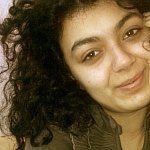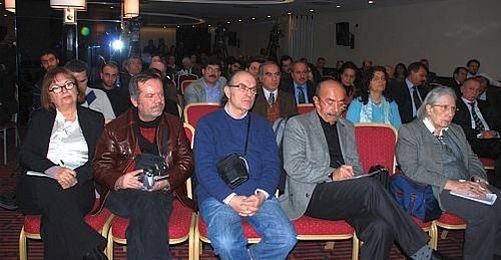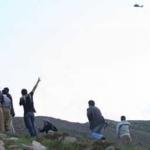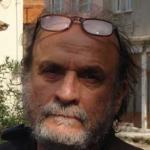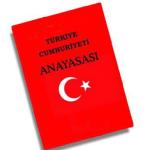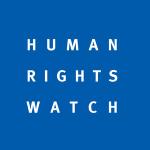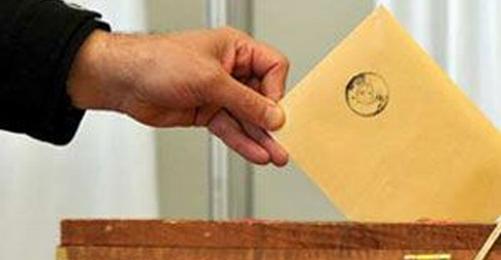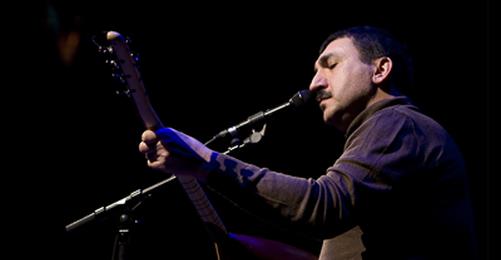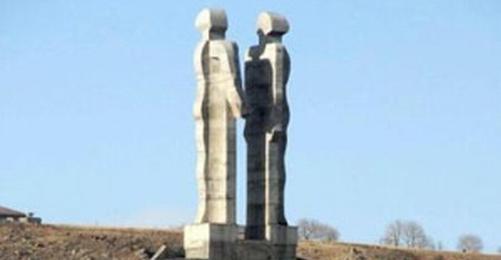The 'Initiative for a Constitution from All for All' held a symposium in Istanbul on 29/30 January to discuss proposals for a new constitution, such as lifting the election threshold, current provisions that should not be amended, countries that could be taken as an example in the process of working out a new constitution and whom to involve in this process.
In the second session in the Taksim Hill Hotel on Sunday (30 January), the attendees discussed suggestions how citizens, political parties and the initiative could contribute to find a solution for a new constitution that tackles current problems.
Speeches were delivered by Sultan Seçik Kulibay on behalf of the Socialist Democracy Party (SDP), Tevfik Usluoğlu from the Front Movement, the publisher of a Greek weekly, Mihail Vasiliadis, the President of the Diyarbakır Bar Association, Mehmet Emin Aktar, journalist Ertuğrul Kürkçü, the Deputy Head of the Liberal Democratic Alevi Association, İbrahim Erdoğan, Peace and Democracy Party (BDP) Istanbul Provincial Women Assembly Member Ayşe Berktay, Abdülkadir Küçükbayrak, Yakup Karabacak and Ahmet Aday, President of the Kurdish Democracy Culture and Solidarity Association.
The session's first contribution was made by Sultan Seçik Kubilay on behalf of the SDP. She assessed the current discussion on a new constitution as a first step and emphasized the need to find ways to carry the process forward.
Kulibay described the steps taken by the ruling Justice and Development Party (AKP) for a new constitution as a touch-up work and as an effort to put the country into a second strait-jacket after the military coup in 1980. "This is more than the discussion on a new constitution. This is a discussion to define common rules of life regarding the way we are going to live", she claimed.
Mihail Vasiliadis said that a constitution comprising freedom can only be obtained in a joint struggle. "Education in the mother tongue does not mean lessons in the mother tongue, making children memorize the contents of the Tawhid Teachings and have them repeated. Education in the mother tongue means to pass on everybody's identity, to leave and teach the culture as a heritage to the children by protecting the origins".
Mehmet Emin Aktar, Head of the Bar Association of Diyarbakır in the predominantly Kurdish region of south-eastern Turkey, greeted the audience in Turkish as well as Kurdish. "First of all, we have to change the format of using sovereignty" he claimed and recommended that now the Kurds - who until now were always the ones defined by the state - should define the state. "The legitimacy of the constitution will always be an issue as long as the political parties dealing with the Kurdish question are not represented in parliament", he continued.
Journalist Ertuğrul Kürkçü noted that he did not speak as an expert on the constitution or as an engineer but as a citizen. "We have to discuss the constitution on a 'no state' assumption because the state and freedom are two concepts opposing each other. What interests us is not the state but has to be the question how to advance the life and the activities of the citizens. Only with this approach can the conception of a constitution render freedom", Kürkçü said.
As long as the ten percent election threshold is being continued, one third of all Turkish citizens cannot be represented in the parliament, Kürkçü emphasized. He continued that the existence of 5,000 detainees of "leftist terrorism" obstructed an equal representation just as much as the election threshold.
Kürkçü indicated that before starting the discussion on the new constitution, a general amnesty for detainees of "leftist terrorism" and the restitution of their rights would be important in terms of showing the will-power to remove the oppression created by the previous constitution. Referring to countries with former military dictatorships such as Brasilia, Chile and Argentina, he added, "We have to take these models as examples because the steps taken by these countries were much more radical and much more democratic". Kürkçü finished his speech by saying, "It does not matter if it is long or short. What matters is that it is ours!"
İbrahim Erdoğan, a senior Alevi Dervish, started his speech by saying that it was time to leave the conference hall since the discussion was not fruitful at all. He demanded that Shiism should be recognized as an independent belief. Erdoğan also reiterated their demand to remove the Ministry of Religious Affairs and emphasized that it should be thoroughly discussed how to fill that gap appropriately and justly.
Ahmet Aday greeted Kurdish politician Leyla Zana in Kurdish at the beginning of his speech. He called for a democratic, egalitarian and liberal constitution.
Tevfik Usluoğlu, reminding Arab and Alevi identities to be included, talked about the intention of an assimilation policy against Arabs. "We demand a constitution that encompasses the principle of equality of all identities as a basis. We reject a monist attitude and a constitution embracing this attitude. We are also citizens of this country", Usluoğlu argued. "Additionally, there are not only two languages in Turkey, not only Kurdish and Turkish but there are many languages and we propose multilingualism".
Ayşe Berktay from the pro-Kurdish BDP Istanbul Provincial Women Parliament emphasized that nobody should prefer any values based on gender, language, religion, ethnic origin or identity. "The people and the society should be the centre of this constitution", she said and continued, "There have to be women among the people who work out the new text and these women should have a woman's perspective". (EK/EÖ/VK)




